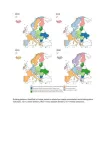(Press-News.org) Fully automated diagnostic techniques, including liquid handling robots, are poised to improve the lives of millions of people living with inflammatory diseases worldwide.
A landmark WEHI study has revealed new methods in detecting necroptosis, a key factor in many inflammatory diseases like psoriasis, arthritis and inflammatory bowel disease.
The findings mark a huge leap forward in our ability to diagnose necroptosis accurately. They also offer practical methods that can be easily reproduced in hospitals worldwide, giving hope for new ways to treat inflammatory diseases.
At a glance
Necroptosis is a form of cell death, one of the body’s natural processes for removing unwanted or dangerous cells. In some people this process can go awry and trigger disease.
Researchers have developed a set of automated techniques to pinpoint when and where necroptosis happens in patients.
The findings could lead to better diagnosis and personalised treatments for numerous inflammatory diseases.
Catching the cell death ‘culprit’
Necroptosis, a type of cell death associated with inflammation, has long been suspected as the ‘culprit’ driving many debilitating diseases associated with gut, skin, and lung conditions. However, identifying which cells undergo necroptosis in real-life situations has been difficult.
WEHI’s Dr Andre Samson, co-leader of the study, said the findings had cracked a challenging and hotly debated area of science.
“It is so exciting to finally be able to catch necroptosis in the act,” Dr Samson said.
The new methods precisely located necroptosis in patients with ulcerative colitis or Crohn’s disease, providing critical insights into how this cell death process contributes to various inflammatory diseases.
The findings further revealed that necroptosis responds not just to inflammation, but also to bacterial changes or immune issues.
“Among other results, we also found that when proteins like Caspase-8 cluster together in cells, it's a sign of necroptosis,” Dr Samson said.
“This is a major leap forward in our journey to eventually delivering new medicines that can treat a long list of inflammatory diseases by stopping necroptosis.
“It helps us understand when and where necroptosis happens, both in healthy and disease situations.”
Diversity delivers
The study involved a meticulous and painstaking process of optimising over 300 different experimental conditions to arrive at a set of reliable robotic methods.
Study co-leader and WEHI Inflammation division head, Professor James Murphy, said a ‘perfect trio’ was behind the groundbreaking results – decades of tireless cell death research, cutting edge technology and a brilliant global team.
“We used multiple techniques, including state-of-the-art spatial transcriptomics to scrutinise and verify our results,” Prof Murphy said.
“The size and diversity of the team was also noteworthy and critical to uniting invaluable perspectives and expertise.”
The team included three PhD students – Shene Chiou, Aysha Al-Ani and Wayne Cawthorne – six departments from WEHI, spanning disciplines from advanced imaging to genomics, plus collaborators including gastroenterologists from the Royal Melbourne Hospital and bioinformaticians from Cornell University in New York.
Lifesaving atlas for the future
The research opens new windows to understanding the intricate mechanisms of cell death and its connection to inflammatory diseases.
The team behind the study referred to their work as an “atlas of necroptosis” because it provides a precise map of which cells in the body are capable of undergoing necroptosis.
“We can now confidently visualise where and when necroptotic cell death can happen in the body,” said Prof Murphy.
In the spirit of collaboration, Prof Murphy emphasised that a key goal of the study was to discover a solution that could be easily replicated in both the laboratory and clinical settings.
"Most importantly, researchers and clinicians around the world will now be able to use these new methods, especially as liquid handling robots for immunostaining are common in hospitals and pathology departments worldwide,” he said.
"The next phase is to use these robotic methods to advance our understanding of which diseases could benefit from medicines that block necroptosis."
The successful development of these automated methods to detect necroptosis in patients is just the beginning. The research team plans to extend their techniques to investigate other gut diseases, such as coeliac disease, and a broader range of inflammatory conditions of the skin, lung and kidney.
The study “An immunohistochemical atlas of necroptotic pathway expression” is now published in EMBO Molecular Medicine (DOI: 10.1038/s44321-024-00074-6).
The research was supported by the National Health and Medical Research Council, the Kenneth Rainin Foundation, Anaxis Pharma and in collaboration with the Royal Melbourne Hospital and Cornell University.
END
Robots help put brakes on inflammatory diseases
Study unveils new automated diagnostic techniques
2024-06-25
ELSE PRESS RELEASES FROM THIS DATE:
Chronic loneliness may increase stroke risk among older adults
2024-06-25
Embargoed for release: Monday, June 24, 7:30 PM ET
Key points:
In a study of loneliness and stroke risk over time among adults ages 50+, those who experienced chronic loneliness had a 56% higher risk of stroke than those who consistently reported not being lonely.
Those who experienced situational loneliness did not have an elevated risk of stroke—suggesting that the impact of loneliness on stroke risk occurs over the longer term.
Boston, MA—Chronic loneliness may significantly raise older adults’ risk of stroke, according to a new study led by Harvard T.H. Chan School of Public Health.
“Loneliness is increasingly considered a ...
Risk of Parkinson’s more than double for people with anxiety
2024-06-25
The risk of developing Parkinson’s is at least twice as high in people with anxiety compared to those without, finds a new study by UCL researchers.
The research, published in the British Journal of General Practice, investigated whether there was a link between people over the age of 50 who had recently developed anxiety and a later diagnosis of Parkinson’s.
The team used UK primary care data between 2008 and 2018 and assessed 109,435 patients who had developed anxiety after the age of 50 and compared them to 878,256 matched ...
European countries differ in their drinking styles – what is yours?
2024-06-25
A new study of drinking patterns across Europe from 2000 to 2019 shows that drinking occurs in stable, beverage-specific clusters that seem to be partly determined by geography. The study was published today by the scientific journal Addiction.
The study identified six drinking patterns in Europe in 2019:
Wine-drinking countries: France, Greece, Italy, Portugal, and Sweden. Characterized by the highest consumption of wine, lowest consumption of beer and spirits, and lowest overall alcohol consumption.
High beer/low spirit drinking ...
Children born underweight are at increased risk of disease if they develop obesity
2024-06-25
Scientists at the University of Copenhagen discover a link between birthweight and the risk of health complications from obesity during childhood. The findings highlight the need for prevention and treatment approaches for children with obesity who were born with a lower birth weight.
Hundreds of millions of people live with obesity, which is normally measured as a higher-than-optimal body mass index (BMI). While an elevated BMI increases the risk of a range of cardiometabolic diseases and is responsible for around five million deaths a year according to the World Health Organization, not everyone is equally at risk.
Scientists at the ...
New research questions safety of cannabidiol for pregnant women
2024-06-25
Vienna, Austria: Cannabidiol (CBD), one of the active ingredients in cannabis, is thought to be safe as it does not cause a “high”. Increasing numbers of pregnant women take CBD, believing that it can help alleviate symptoms such as morning sickness, insomnia, anxiety and pain.
However, research presented today (Tuesday) at the Federation of European Neuroscience Societies (FENS) Forum 2024 [1,2], suggests that it may affect offspring. Two studies in mice have shown that gestational exposure to CBD alters the behaviour of offspring and also affects the nerve cells (neurons) in the insular cortex (IC) ...
Scientists can now detect antibiotics in your fingerprints – aiding the fight against drug-resistant TB
2024-06-25
A fingerprint may soon be all a doctor needs to check whether tuberculosis patients are taking their antibiotics – thanks to a new study led by the University of Surrey.
Scientists successfully detected the drugs in finger sweat – and with almost the same accuracy as a blood test.
Professor Melanie Bailey, an analytical chemist and co-author of the study from the University of Surrey, said:
“Up until now, blood tests have been the gold standard for detecting drugs in somebody’s ...
Heart disease model puts cells to work
2024-06-25
By Leah Shaffer
Using animals to study heart disease doesn’t always translate well to human health outcomes, and human heart cells available for research don’t work outside the human body.
“You can’t keep them alive, much less function outside of the person for long enough to study these processes,” said Nathaniel Huebsch, an assistant professor of biomedical engineering in the McKelvey School of Engineering at Washington University in St. Louis. Huebsch is studying cells with a mutation that causes hypertrophic cardiomyopathy (HCM), a disease that can set off heart failure ...
Positive emotion skills combat burnout among health care workers
2024-06-24
Intervention improved well-being in workers who were highly stressed by the job
Health care worker burnout was on the rise before COVID-19 and continues today
Addressing significant structural barriers in U.S. health care ‘needs to be a top priority’
Easily accessible individualized solutions also are needed to boost well-being in stressed health-care workers
CHICAGO --- The COVID-19 pandemic exacerbated already rising rates of burnout among American health care workers. A new Northwestern University study found learning and practicing skills that increase positive emotion like gratitude, mindful awareness and self-compassion ...
Partridge receives Department of Energy Vehicle Technologies Office Lifetime Distinguished Achievement Award
2024-06-24
Bill Partridge, a recently retired distinguished researcher at the U.S. Department of Energy’s Oak Ridge National Laboratory, was recognized by DOE’s Vehicle Technologies Office, or VTO, for leading world-class research in transportation throughout his 25-year career. His expertise has guided the development of advanced diagnostic tools that enabled next-generation engines and emissions control systems.
Partridge was presented the Lifetime Distinguished Achievement Award during the VTO Annual Merit Review held on June 3, 2024, in Washington, D.C. He was nominated for the award by the VTO Decarbonization of Offroad, Rail, Marine ...
ACP offers recommendations to support LGBTQ+ health care equity
2024-06-24
Embargoed for release until 5:00 p.m. ET on Monday 24 June 2024
Annals of Internal Medicine Tip Sheet
@Annalsofim
Below please find summaries of new articles that will be published in the next issue of Annals of Internal Medicine. The summaries are not intended to substitute for the full articles as a source of information. This information is under strict embargo and by taking it into possession, media representatives are committing to the terms of the embargo not only on their own behalf, but also on behalf of the organization they represent.
----------------------------
1. ...
LAST 30 PRESS RELEASES:
Science reveals why you can’t resist a snack – even when you’re full
Kidney cancer study finds belzutifan plus pembrolizumab post-surgery helps patients at high risk for relapse stay cancer-free longer
Alkali cation effects in electrochemical carbon dioxide reduction
Test platforms for charging wireless cars now fit on a bench
$3 million NIH grant funds national study of Medicare Advantage’s benefit expansion into social supports
Amplified Sciences achieves CAP accreditation for cutting-edge diagnostic lab
Fred Hutch announces 12 recipients of the annual Harold M. Weintraub Graduate Student Award
Native forest litter helps rebuild soil life in post-mining landscapes
Mountain soils in arid regions may emit more greenhouse gas as climate shifts, new study finds
Pairing biochar with other soil amendments could unlock stronger gains in soil health
Why do we get a skip in our step when we’re happy? Thank dopamine
UC Irvine scientists uncover cellular mechanism behind muscle repair
Platform to map living brain noninvasively takes next big step
Stress-testing the Cascadia Subduction Zone reveals variability that could impact how earthquakes spread
We may be underestimating the true carbon cost of northern wildfires
Blood test predicts which bladder cancer patients may safely skip surgery
Kennesaw State's Vijay Anand honored as National Academy of Inventors Senior Member
Recovery from whaling reveals the role of age in Humpback reproduction
Can the canny tick help prevent disease like MS and cancer?
Newcomer children show lower rates of emergency department use for non‑urgent conditions, study finds
Cognitive and neuropsychiatric function in former American football players
From trash to climate tech: rubber gloves find new life as carbon capturers materials
A step towards needed treatments for hantaviruses in new molecular map
Boys are more motivated, while girls are more compassionate?
Study identifies opposing roles for IL6 and IL6R in long-term mortality
AI accurately spots medical disorder from privacy-conscious hand images
Transient Pauli blocking for broadband ultrafast optical switching
Political polarization can spur CO2 emissions, stymie climate action
Researchers develop new strategy for improving inverted perovskite solar cells
Yes! The role of YAP and CTGF as potential therapeutic targets for preventing severe liver disease
[Press-News.org] Robots help put brakes on inflammatory diseasesStudy unveils new automated diagnostic techniques




